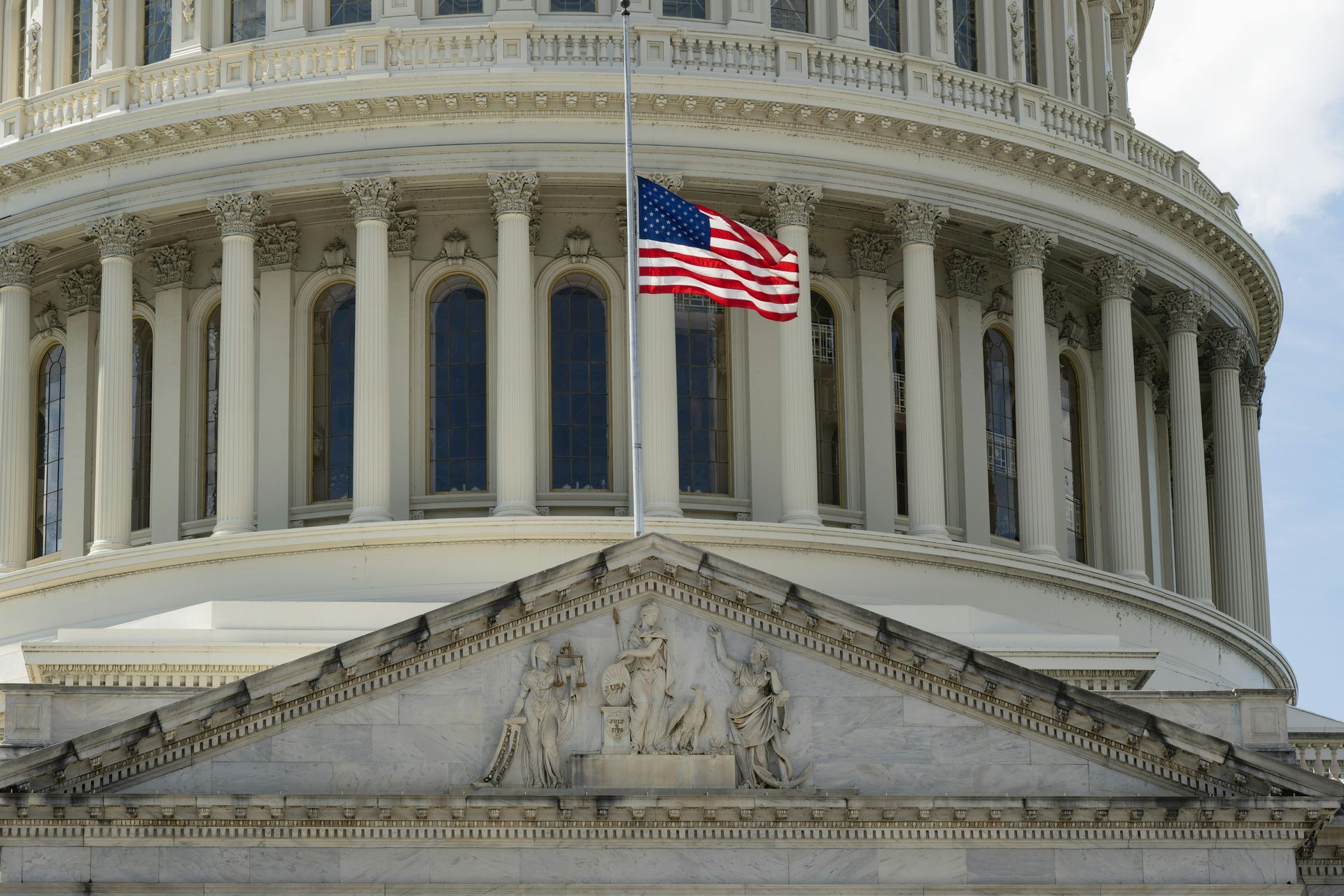What Is Fasting and Should I Do It?
By Nicholas Harris • August 11, 2025
Exploring the Biblical Call and Modern Invitation to Fast
Introduction
In today’s culture of instant gratification and comfort, the spiritual discipline of fasting may seem outdated or extreme. But for centuries, believers have practiced fasting as a powerful way to seek God, deepen their relationship with Him, and break through spiritual barriers. Scripture is filled with examples of how the people of God fasted.
So, what is fasting? Is it something every believer should do? And what might we expect when we fast? This article will explore these questions through biblical insight, practical application, and the teachings of Jentezen Franklin’s acclaimed book Fasting.
What is Fasting?
At its core, fasting is voluntarily abstaining from food (or other sources of pleasure/benefit) for a spiritual purpose. Unlike dieting or detoxing, biblical fasting is never merely about physical benefits. It is a sacred act of surrender and dependence on God.
In his book Fasting, Franklin defines it simply:
“Fasting is not about getting something from God. It’s about getting to God.”
- Jentezen Franklin, Fasting
Fasting involves denying our flesh in order to seek God more intimately. When we fast, we align our spirit with His Spirit, quiet distractions, and humble ourselves before Him.
Biblical Foundation of Fasting
Fasting is not a fringe idea. It is deeply rooted in Scripture, practiced by the prophets, kings, disciples, and Jesus Himself. Here’s what the Bible says about fasting:
1. Fasting Was Expected
Jesus says:
“When you fast, do not look somber as the hypocrites do, for they disfigure their faces to show others they are fasting. Truly I tell you, they have received their reward in full. But when you fast, put oil on your head and wash your face, so that it will not be obvious to others that you are fasting, but only to your Father, who is unseen; and your Father, who sees what is done in secret, will reward you.”
- Matthew 6:16-18 (ESV)
Notice Jesus doesn’t say “if you fast”, He says “when.” Fasting was not an option but assumed in the life of a disciple. Like prayer and giving, it was part of a normal rhythm of devotion.
2. Fasting as a Tool for Breakthrough
Throughout the Old and New Testament, people fasted for divine help in times of crisis. For example:
- Jehoshaphat proclaimed a fast when Judah faced annihilation (2 Chronicles 20:3).
- Ezra fasted for protection before a dangerous journey (Ezra 8:21-23)
- Esther called for a national fast before going to the king to save her people (Esther 4:16).
Fasting was used to seek guidance, deliverance, repentance, and miracles.
“When you deny your body food, you’re feeding your spirit the things of God.”
- Jentezen Franklin, Fasting.
3. Jesus Fasted
Perhaps the most powerful endorsement of fasting is found in the life of Jesus. Before beginning His public ministry, He fasted for 40 days in the wilderness (Matthew 4:1-11). This time of fasting prepared Him for the challenges and spiritual battles ahead.
If Jesus needed to fast, how much more do we?
Why Should I Fast?
Fasting is not about earning God’s favor. It’s not a hunger strike to manipulate Him. Instead, it’s about preparing our hearts for what God wants to do in and through us.
Here are a few biblical reasons to fast:
1. To Deepen Your Relationship with God
Fasting removes distractions and makes space for intimacy with the Father; it is a time to press into prayer, worship, and scripture.
“Fasting separates you from what contaminated you and draws you closer to God.”
- Jentezen Franklin, Fasting.
In Joel 2:12, God calls His people to return to Him with fasting:
“Even now,” declares the Lord, “return to me with all your heart, with fasting and weeping and mourning.”
- Joel 2:12 (NIV)
2. To Hear God’s Voice More Clearly
Fasting tunes your spiritual ears. In Acts 13:2, we read:
“While they were worshiping the Lord and fasting, the Holy Spirit said, “Set apart for me Barnabas and Saul for the work to which I have called them.”
- Acts 13:2 (ESV)
When we fast, we silence other voices- social media, food cravings, the rut of daily life—and make room for the voice of God.
3. To Break Strongholds
Fasting is a powerful weapon against the strongholds of sin, addiction, and spiritual oppression. Jesus told His disciples that some demonic powers can only be cast out by prayer and fasting (Mark 9:29, NKJV)
“Fasting is a secret source of power that is overlooked by many Christians.”
- Jentezen Franklin, Fasting.
4. To Seek God’s Direction
In times of decision, fasting can bring clarity. In Judges 20:26, the Israelites fasted before battle to seek God’s will. When Paul and Barnabas were appointed for ministry, the leaders fasted and prayed (Acts 14:23).
5. To Express Repentance and Humility
Fasting can be a posture of humility and sorrow over sin.
“Yet when they were ill, I put on sackcloth and humbled myself with fasting…”
- Psalm 35:13 (NIV)
Franklin’s “Threefold Cord”
Jentezen Franklin emphasizes the power of combining fasting, prayer, and giving. He calls it the “threefold cord” based on Ecclesiastes 4:12
“And though a man might prevail against one who is alone, two will withstand him—a threefold cord is not quickly broken.”
- Ecclesiastes 4:12 (ESV)
Franklin writes:
“When you fast, you get heaven’s attention. When you pray, you align your heart. When you give, you activate blessing. Together, they become a force.”
- Jentezen Franklin, Fasting
Types of Fasts
Fasting doesn’t always look the same. Here are several types found in Scripture:
1. The Absolute Fast
No food or water (Esther 4:16, Acts 9:9). Usually done for a short period and with great caution.
2. The Normal Fast
No food, only water (Luke 4:2). This is what Jesus did during His 40-day fast.
3. The Partial Fast (Daniel Fast)
This involves removing specific types of food (Daniel 10:3). Many believers today do this by eating only fruits, vegetables, and water for a set time.
“The Daniel Fast is not just about eating differently; it’s about praying differently.”
- Jentezen Franklin, Fasting
4. Soul Fast
Abstaining from things like social media, entertainment, or other distractions to focus on God.
How to Begin Fasting
If you’re new to fasting, start small. Here’s a basic plan:
1. Set Your Objective: Are you fasting for breakthrough, direction, or deeper intimacy with God?
2. Decide the Type of Fast: Choose one that fits your current physical and spiritual capacity.
3. Prepare Your Heart: Repent, forgive, and set time aside for prayer and reading the Word. This is the foundation of your fast.
4. Make a Commitment: Write down your fast dates and goals. Tell a trusted friend for accountability. The accountability helps you stay the course in your fast.
5. Expect Spiritual Warfare: You will face temptation, discouragement, or fatigue. Rest in the power of the Holy Spirit for strength.
6. Break the Fast Gently: Especially after a food fast—ease your body back slowly.
Common Obstacles to Fasting
“I don’t have time.”
Fasting doesn’t require more time- it requires a shift of how you use your time. Replace meals or screen time with prayer and Scripture.
“I’m afraid I’ll fail.”
Failure is not the end. If you mess up, don’t give up. Grace is a part of the process.
“God honors desire even more than performance.”
- Jentezen Franklin, Fasting
“It seems too intense.”
Start with a partial fast or a one-day fast. God sees the heart, not just the level of sacrifice.
The Rewards of Fasting
Fasting is not about twisting God’s arm; it’s about aligning with His heart. And there are blessings to follow.
“Your Father who sees what is done in secret will reward you.”
- Matthew 6:18 (NIV)
Jentezen Franklin often speaks of people in his church who experienced:
- Healing from chronic illness
- Reconciliation in broken families
- Freedom from addiction
- Financial breakthrough
- Spiritual renewal and purpose
“Every time you fast, heaven takes notice.”
- Jentezen Franklin, Fasting
Should You Fast?
The answer is: Yes-you want more of God.
Fasting is not reserved for spiritual giants or church leaders. It’s a gift for every believer who wants to draw near to God and experience His power in a deeper way.
You should fast if:
- You feel spiritually dry.
- You need breakthrough in an area.
- You’re hungry for more of God.
- You’re seeking direction.
- You’re desperate to see God move.
Final Thoughts
Fasting is more than just skipping meals. It’s an invitation to deeper intimacy, increased sensitivity to the Spirit, and powerful breakthrough. Through fasting, you make room for God’s presence and power to manifest in your life.
As Jentezen Franklin writes:
“Fasting is a secret source of power. It unlocks doors and releases destinies.”
- Fasting
So, should you fast?
Yes, not out of obligation, but out of hunger for the ONE who satisfies.
Resources
Fasting by Jentezen Franklin
The Bible, especially Matthew 6, Isaiah 58, Joel 2, Daniel 1 & 10, and Acts
Don’t Just Scroll—Stay Rooted in Truth.
Get weekly insights that help you think biblically and live faithfully.
Contact Us
Thank you for subscribing!
Please try again later.
SHARE THIS











